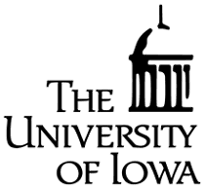Teaching
Courses at Univesity of Iowa

Below are current and past courses in the Department of Physics and Astronomy at the University of Iowa:
- Spring 2025: PHYS:7729 Plasma Physics II
- Fall 2024: PHYS:4731 Plasma Physics I
- Spring 2024: ASTR:7830 Space and Astrophysical Plasmas
- Fall 2023: PHYS:4761 Mathematical Methods of Physics I
- Spring 2023: PHYS:7729 Plasma Physics II
- Fall 2022: PHYS:4731 Plasma Physics I
- Spring 2022: PHYS:7730 Advanced Plasma Physics
- Fall 2021: PHYS:1701 Physics I
- Spring 2021: PHYS:7729 Plasma Physics II
- Fall 2020: PHYS:4761 Mathematical Methods of Physics I
- Spring 2020: PHYS:1702 Physics II
- Fall 2019: Visiting Kavli Institute for Theoretical Physics, UCSB
- Spring 2019: PHYS:5905 Special Topics: Numerical Simulation of Plasmas
- Fall 2018: PHYS:4761 Mathematical Methods of Physics I
- Spring 2018: PHYS:4761 Mathematical Methods of Physics II
- Fall 2017: PHYS:4761 Mathematical Methods of Physics I
- Spring 2017: Sabbatical at Basic Plasma Science Facility, UCLA
- Fall 2016: PHYS:4761 Mathematical Methods of Physics I
- Spring 2016: PHYS:4762 Mathematical Methods of Physics II
- Fall 2015: PHYS:4761 Mathematical Methods of Physics I
- Spring 2015: 029:293 Plasma Physics II
- Fall 2014: 029:27 Physics I
- Spring 2014: 029:278 Space and Astrophysical Plasmas
- Fall 2013: 029:27 Physics I
- Spring 2013: 029:293 Plasma Physics II
- Fall 2012: 029:225 Fundamental Contributions in Plasma Physics, Space Physics, and Astrophysics
- Spring 2012: 029:235 Space and Astrophysical Plasmas
- Fall 2011: Junior Faculty Career Development Award
- Spring 2011: 029:195 Plasma Physics II
- Fall 2010: 029:194 Plasma Physics I
- Spring 2010: 029:011 College Physics I
- Fall 2009: Establishment of Howes Research Group at the University of Iowa
- Spring 2009: 029:195 Plasma Physics II
- Fall 2008: 029:194 Plasma Physics I
Teaching Interests
My primary interests in teaching are:
- Improved lower division undergraduate teaching through interactive learning techniques such as peer instruction
- Upper division or graduate plasma physics
- Upper division or graduate electromagnetism
- Space and Astrophysical Plasmas
- Parallel Programming for Scientific Applications
- The Practice of High-Performance Computing
Experiments with Interactive Learning Techniques
In teaching the College Physics I course (029:011), a first semester physics course for pre-health science majors, I adopted a number of modern methods for science teaching, in particular the peer instruction methods pioneering by Eric Mazur and others. Punctuating standard lecture time with qualitative interactive questions and gauging student comprehension using Personal Response Systems (clickers) was quite popular with students, gave students an opportunity to apply the material just presented to a real problem. In addition, when student comprehension was poor, I used the Think-Pair-Share strategy to enable them to learn from each other, giving the students a chance to learn the material from a different perspective. In addition, I employed online homework through Wiley-Plus to give the students the opportunity to try numerical problems many times to achieve full credit. Overall, I believe my first full-fledged attempt to use interactive learning in the classroom was highly successful, and I received some of the highest student evaluation scores in the department that semester.
Previous Teaching Experience
I have taught at Occidental College as an Adjunct Assistant Instructor for three semesters, Fall 1996, Spring 1997, and Fall 2000. Below I give a brief description of the courses I taught.
Physics 105- Light
- An introductory course on optics, waves, relativity, and quantum mechanics.
- Intended as the first course for Physics majors as well as a course open to non-science majors as fulfillment of the laboratory science requirement.
- As this newly developed course had only been offered once previously, a large part of my job involved refinement of the curriculum.
Physics 105- Light Laboratory
- Standard optics labopratory experiments.
Physics 110- Mechanics
- An introductory, calculus-based course on classic mechanics.
Physics 110- Mechanics Laboratory
- Standard optics labopratory experiments.
Physics 140- Light and Modern Physics Laboratory
- Experiments on optics, waves, and nuclear physics.